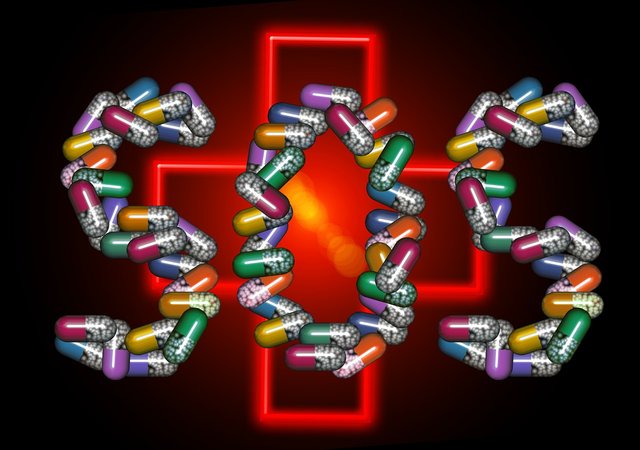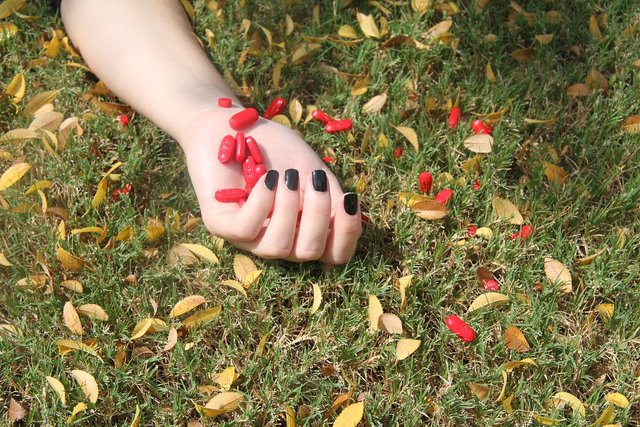MEDICATION : Use Or Misuse

Medication (also called medicine or Pharmaceutical drug) is the use of legal drugs to diagnose, cure, treat or prevent illness or diseases. Some drugs are freely sold; that is, consumers can order them for themselves. They are called over-the-counter (OTC) drugs. Other drugs are so powerful or dangerous that a doctor must give permission to use them.
The note from the doctor is called "Prescription." These drugs are called prescription drugs, prescription medicines, or prescription only medicines (POM). There are different kinds of medicine or Pharmaceutical drug and different ways of administring or taking them.
- Antipyretics : Reduces fever (Pyrexia/pyresis)
- Analgesics : Reduces pain (Painkillers)
- Antimalarial drugs : Treats malaria
- Antibiotics : Treats or cures bacterial and fungal infections
- Antidepressant : Treat depression
- Flu Vaccine: Prevents flu.
For most medications to work, they need to get into the bloodstream. The blood carries the medicine around the body and takes it where it is needed. The way a medication is given or taken affects how much of the medicine gets into the bloodstream; how much of the medicine reaches the tissue where it needed to; and how long the medicine's effect will last. So while some medications are inhaled or breath in, some are injected into the vein and muscle or applied directly in the eye, ear, or skin. But the most common method of taking medications is orally (by mouth) in form of pills, capsules or liquid.
Although medications are meant to improve health through diagnosing, treating, curing or preventing diseases or illnesses, they can be injurious to health. The negative or positive effect of a drug depends on the kind of drug taken, how much is taken, and how often it is taken. So, understanding how to administer drugs correctly can reduce the risks associated with drug misuse.

As a habit, some people take medication without a doctor's prescription. This is known as self-medication. Self-medication is dangerous and can lead to death. It is not good to take prescription drugs not ordered by a certified, qualified, or practising medical doctor. It is not enough to take medications just because they are prescribed and advertised on TV, Radio, and Newspapers or prescribed by relatives, friends or neighbours. You must ensure you take prescription drugs only at the order of a certified medical doctor, and any prescription drug dispensed by a pharmacist or nurse must be prescribed by a doctor. It is also wrong to buy prescription drugs over the counter.
To get maximum benefit from medications, therefore, avoid the indiscriminate use of drugs, that is, take all medications exactly as prescribed by your doctor, and never patronize quacks, local herbal vendors, share medicines prescribed for someone else, or lend medicines to others. Even though symptoms may appear the same, the problem may be different.
Understand that prescriptions are written based on a person's health problem, physical condition, age, and weight. And what is effective and safe for you may result in severe reaction for another person. Avoid takingsomeone else's prescribed medication; it exposes you to a host of problems, some of which could be life-threatening or even fatal. Take all medicines with water because water has no other substance that may affect the absorption of medicines. Do not take medicines with milk, tea, coffe, soft drink, or fruit juice. These liquids may interfere with some medicines and affect their effectiveness. Also, be careful not to take expired medicines; it is dangerous!
Facts:
Deaths from overdoses of prescription drugs have been increasing since the early 1990s, largely due to increases in misuse of prescription opioid pain relievers. More than 29,700 people died from a prescription drug overdose in 2015, with alarming increases among young people ages 15.
Mixing different types of prescription drugs can be particularly dangerous. For example, benzodiazepines interact with opioids and increase the risk of overdose. Also, combining opioids (pain relievers) with alcohol can make breathing problems worse and can lead to death.
Prescription drugs
More Facts:
- In the United States, 20 percent of people have used prescription drugs for non medical reasons
- Some of the prescription drugs like narcotic painkillers, sedatives, tranquilisers, and stimulants can lead to addiction when abused.
- In 2005, there were 598,542 reported emergency room visit as a result of non-medical use of prescription drugs and over-the-counter pharmaceuticals.
- 2.4 million people initiated non-medical use of prescription pain relievers in 2004
- Every day in the US, 2,500 youth (12 to 17) abuse a prescription pain reliever for the first time.
Side Effects Of Prescription Drug Abuse:
Here are some of the side effects that can occur as a result of prescription drug abuse;
- Confusion
- Alteration in mood
- Inability to sleep or excess sleep
- Erratic behaviour
- Anxiety
- Hyperactive
- Overdose
- Suicidal tendencies
- Addiction
- Job loss
- Financial difficulties
Play Safe! Stay Alive!!
Thank you for reading
References:
Are you taking medication as prescribed?
Follow @bible.com
Congratulations @ifexbabe! You received a personal award!
You can view your badges on your Steem Board and compare to others on the Steem Ranking
Do not miss the last post from @steemitboard:
Vote for @Steemitboard as a witness to get one more award and increased upvotes!